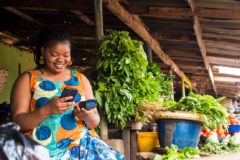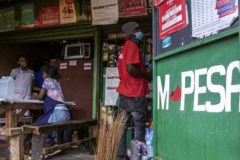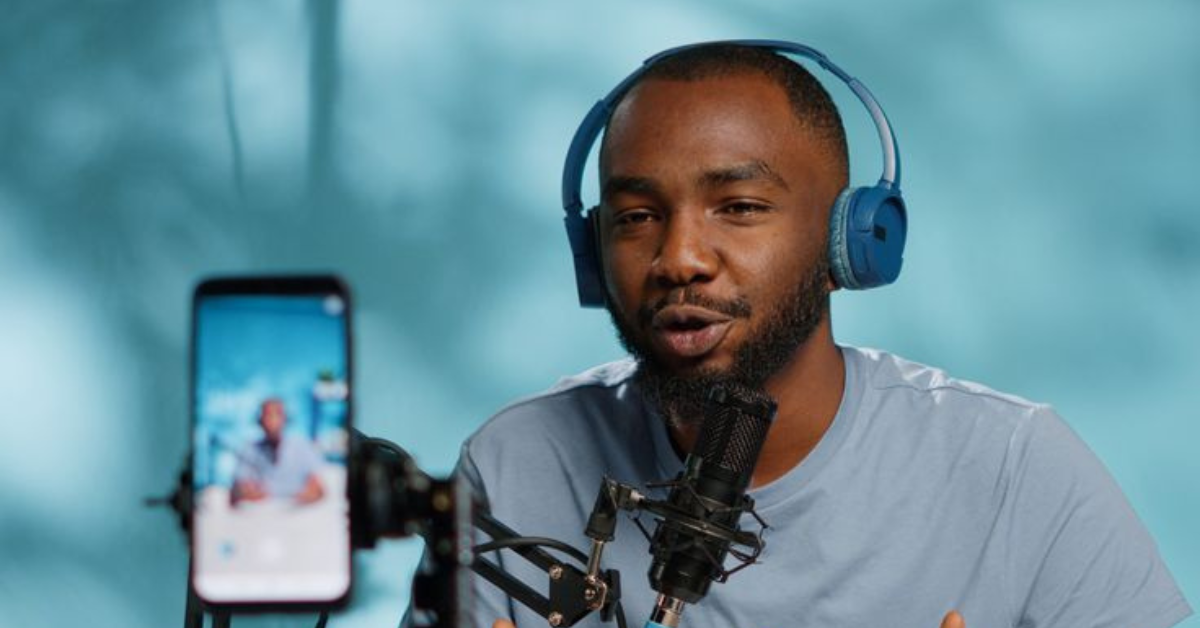Editor’s note: This article is part of TC Insights’ Investor Snapshot Series. Today’s edition is focused on Quona Capital.
Emily owns a duka (small shop) in Kenya. Although she sells in small quantities, restocking is not a problem for her. All she has to do is send an SMS to a provided number. A Sokowatch account manager confirms her order and assigns it to a nearby agent who delivers to her for free.
Sokowatch can also predict her orders by using data from her previous orders. This means she gets her goods in a very short time, without ever having to leave her shop. This saves her the time and money she would have spent traveling to the central market to purchase directly from wholesalers.
Aside from bridging the gap between informal retailers in East Africa like Emily and FMCGs like Unilever, Sokowatch also extends credit lines allowing retailers to place larger orders on affordable payment plans and is also building insurance products. The company is now expanding to other African regions and broadening its financial services on the back of a $14m funding round led by Quona Capital, a US-based venture capital firm.
Serving the underserved
Quona Capital has invested in 33 other growth-stage financial technology companies like Sokowatch that align with their goal of serving the financially underserved. The firm’s portfolio includes Indian consumer lending platform, ZestMoney, whose $20m Series B round is the biggest investment the firm has made so far, and South African digital lending platform, Lulalend.
In Africa, Quona Capital has invested in three other startups – AllLife, Zoona, and Yoco. It aims to provide funding to early or growth-stage fintech businesses in emerging, underserved markets across Africa, Asia, and Latin America. It started as Frontier Investment Group and was part of Accion, a global non-profit keen on financial inclusion. It became independent in 2015 with Monica Brand Engel (Africa and global markets), Jonathan Whittle (Latin America), and Ganesh Rengaswamy (Asia) as the founding team.
According to co-founder Brand Engel, the decision to focus on fintech was deliberate and well-informed.
“Traditional financial services had hit a wall. We needed new approaches that balanced tech and touch in a more nuanced way so that we could achieve our goal of radically improving both access and quality of financial services to the underserved.”, she said in an interview.
The thing about emerging markets
By investing in emerging markets, Quona Capital is doing important work, but it’s also risky and complicated work. How does the firm manage the risk of being exposed to competition that comes from concentrating on one sector and market?
Brand Engel says before the firm invests in a company, it must have demonstrated a product-market fit. Using the Sokowatch example, although the company had great potential, they only invested when Sokowatch had hit certain growth milestones. To enable Sokowatch to reach these milestones very quickly, Quona Capital nominated it for the $100,000 it received from the Catalyst Fund.
The firm invests in companies that serve a broad spectrum of customers; many of them serve a mix of low, middle, and high-income customers. Brand Engel says this is important for two reasons – “One is, it avoids concentration risk — if they were focused on a specific segment it would make them vulnerable to competition or price margin erosion. Two, it allows them to provide the full range of services or products, so as their previously underserved customers evolve financially, they have appropriate services to grow with them.”
Okay, but what are the numbers like?
In 2017, the firm closed its first fund – the Accion Frontier Inclusion Fund which was worth $141m. As of March 2017, the fund had invested in 9 startups across Africa, Asia, and Latin America. Two of these startups made exits in 2019; Coins.ph was acquired by Indonesia’s Gojek and B2B e-commerce company, IndiaMart went public.
Aside from Accion, the fund was backed by over 20 investors, including AXA Impact Fund, Blue Haven Initiative, Calvert Equity Portfolio, the Dalio Foundation, FMO, Heifer Foundation, IDP Foundation, Inc., IFC, JPMorgan Chase, The Lemelson Foundation, Mastercard, MetLife, PG Impact Investments, Private Market Impact Fund, among others.
Earlier this year, in March, the firm closed its second fund – the Accion Quona Inclusion Fund worth $203m, a significant increase from its $150m target. Currently, the total assets under the firm’s management are valued at $360m.
Investing during a pandemic
Quona Capital says COVID-19 presented growth opportunities for its portfolio companies, but it is continuously tracking the effects of the pandemic across all of them.
On this, co-founder Ganesh Rengaswamy said,
“We have a dedicated COVID-19 Taskforce at Quona, led by my colleague Dan Bertoli, that tracks the impacts of COVID across our portfolio companies and the markets they serve, from Latin America to Sub-Saharan Africa and Asia/SE Asia. The Taskforce analyzes data across the portfolio and facilitates COVID-related initiatives.”
“In many ways, COVID represents a tailwind for digital-first fintech products that make financial services more accessible in emerging markets.”, he added.
The firm is already preparing for its Fund III raise and hopes to begin fundraising early next year. It’s not certain how much of an impact the pandemic has had on the firm’s investors but the firm is committed to seeing portfolio companies succeed nonetheless and according to Rengaswamy, it retains a strong financial and impact performance, a key attraction for any investor.
Editor’s note: This is a TC Insights data article. TC Insights clarifies the business and human impact of technology and innovation in Africa with research and data. Find out more about our work here. Got a request for us, let us know here.




















